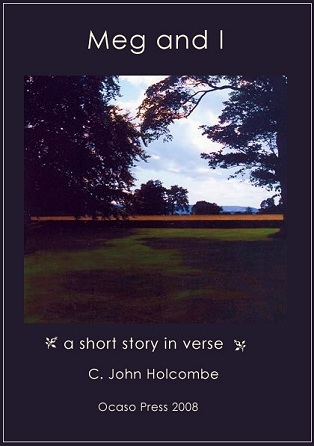A depiction of the east Anglian countryside in her various moods and seasons, but also a tale of commercial adventure as young Robbie and his sweetheart Meg struggle to make a go of their butterfly farm in the depths of an abandoned market-gardening estate. Robbie is an oddball character and Meg is no beauty queen, but they find affection for each other in shared discomfort and hard work about their little farm.

Portrayed is the human heart in its instinctive and understated conditions, which makes no open declaration of love but understands and accepts and soldiers on. Also quietly sketched is the continuing influence of the countryside that gives permanence and meaning to passing and often unfulfilled lives.
The two are successful, but Meg dies on the journey out, and the Butterfly Center is not the dream they envisaged, not with the legal requirements that plague a business today.
But around the butterfly tents and carpoi pool and gift shop still lies the untamed east Anglian countryside, and beneath are the sands and Chalk and glacial drifts that Robbie studied as a boy. In looking back over a half century, Robbie finds life just as he thought it would be, no better than anyone else's, but part of a tradition colored by individual hopes and disappointments and faring on.
Free ebook in pdf format.
We had a little farm there, Meg and I,
beneath the widespread, soft-blue Norfolk sky,
along a rutted track that ran through trees,
to greenhouse, potting sheds and, half-concealed,
beyond the gusting, haunting April breeze,
a wilderness of grass, a waist-high field
of mayweed, marigolds and tormentil.
A lonely place to start, where dawn would spread
its spectral fingers through the mist, in fact
through our cramped quarters also, where we bred
long trays of butterflies. At best a tract
of market-garden wasteland and one stand
of pine trees rooting into pebbled sand.
We took what no one wanted, a scattered heap
of tires, and cardboard boxes, what was cheap
to rent, a long way out, but all the same
our point of origin, a childhood’s den
in fields and coppices, where those became
a haze of sweat and bruises. Here again
we’d go out, all hours, weeks on end—to put
the primus on at last, watch cars go by:
that well-dressed cavalcade of business suits
immaculate in cuff-link, shirt and tie
while we stood working people in our boots:
executives who knew not how or when
but had their secretaries bring tea at ten.
It seemed unlikely that a tent and shed
could keep us so contented, warm and fed
throughout no better than even bet
we'd see a penny back. Yet we stretched
tarpaulins over, watched the concrete set
as day by day the thorns and brambles etched
their criss-cross scratches on the skin. How tired
we were, but stuck it out till prospects changed.
Spring came. We planted carrots, kale
and beet along the field and road, arranged
for some, if locally, to go on sale:
Just loose change shaken from the wind and trees
we grew accustomed to, by slow degrees.
I'd always known each spread of Norfolk scrub
that came up under car-park and the pub:
and, more than that, the ache of afternoon
when nothing happens and our lives drain out
to chores and shopping, and then all too soon
to DIY and car and gardening bout:
the borders rolled out like some coloured shawl,
the little pond, the sprinklers, weeded lawns
that rise to coloured maples, stunted oaks.
Past parks and shopping malls the summer yawns
in seaside trips and picnics, but evokes
an evanescence threading into silvered haze
that slowly tarnishes through summer days.